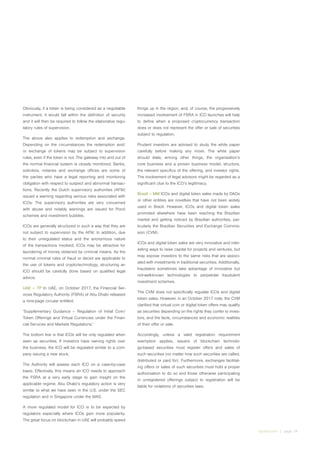The document discusses the rise of blockchain technology and cryptocurrencies, particularly highlighting Bitcoin and Ethereum's roles in transforming global commerce. It emphasizes the importance of decentralization and transparency in this paradigm shift, affecting B2B and B2C interactions, as well as legal implications for contracts and regulations. Additionally, professionals must adapt to new concepts such as smart contracts and decentralized autonomous organizations as these technologies become more mainstream.



















